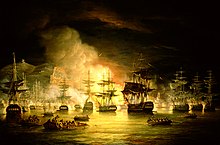1773 - Winter
Bosnia, Serbia, Greece, Bulgaria
Sensing blood given the dismal Ottoman performance against the rebelling Moldavians, Wallachians, Syrians, Egyptians, Georgians and Armenians (to say nothing of the Russians), the final remnants of Ottoman control over the Balkans seemed in great danger as a general rebellion grew throughout Rumelia (Ottoman Balkans not including Greece) and Greece. However, the resistance would be haphazard at best as local politics would dominate the conflict. As much fighting occurred between claimants to various thrones and between ethnic peoples than was focused against the Turk.
Perhaps the greatest advantage the Balkan peoples had over the Porte was the fact that the Russian Navy had utterly wiped out the Ottoman counterpart in the previous war. This would prove massively beneficial to the Greeks whom found they could defend their islands much more easily. Indeed, the Greeks made the greatest gains against the Ottomans early in the rebellion as they were more unified than the other southeastern Europeans. Often, the feuds took a religious dimension as Serbs and Bosniaks fought for territory as well as Muslim Greeks and Bulgarians battled their Christian counterparts.
Though exhausted by year of defeats to Russia and failed campaigns to regain former Eyalets, the Ottoman Empire was hardly finished. While the Ottoman fleet had been destroyed, that did not mean that any other power prevented Turkish troops from crossing into Europe. Reinforcements would filter in even as the Balkans peoples bled one another white.
North Africa
The bizarre coalition of Spanish, Danish, North American and Papal ships would depart from Sicily and cross the narrow stretch of the Mediterranean to Algiers, perhaps the most infamous of the pirate havens. In an unexpected development, the Knights of Saint John would dispatch three armed ships to aid the expedition. Even more surprisingly, a quartet of Irish ships would arrive. Until that moment, none of the temporary allies even knew that Ireland had a navy. However, a Barbary raid had kidnapped sixty Irish citizens earlier in the year in a daring northern raid which had not been attempted in nearly a century. It would only later be determined that the pirates were Tunisian rather than Algerian but that was unknown at this point.
Multiple flags waved over the allied ships but the intent was the same. The allied demanded the immediate return of all European slaves and immediate cessation of all Dey-sponsored pirate activity in perpetuity...or else.
Having frequently been threatened by Europeans in the past with little actual consequences, the Dey didn't feel overly threatened. However, the invaders had brought adequate forces to bear. The great harbor of Algiers was easily enough breeched despite the Dey having ordered several ships sunk to block the harbor. Within days (really hours), the obsolete fortifications would be crushed by dozens of allied ships.
By now, the Dey was rethinking his position. Given that piracy was central to the economy of his domain, he could not merely promise to give up all piracy. Instead, he agreed to release any slaves or hostages of the governments present threatening his city and to cease preying upon the their ships. By this point, though, no one believed such promises. All the assorted Admirals, Captains and Generals agreed that the Dey was making false oaths in order to send the expeditions away. Perhaps never again would such a gathering of power be available. Instead, the assorted forces determined to attack.
Under the nominal command of General Alejandro O'Reilly (a Spaniard of Irish descent), the assembled Marines and army regiments would make landfall with the intent of seizing the city completely. The American contingent was led by a Scotsman named John Paul Jones.
The assault on Algiers Harbor

Though the Algerians would defend several strongpoints with stubborn bravery, the core of the city would fall within three days. So many casualties would be incurred upon the invaders that the infuriated Europeans and North Americans would end up destroying most of the old city to the extent that they actually burned valuable trade goods they could have confiscated.
In honor of his achievement in (at least temporarily silencing a Muslim threat to Christianity), General O'Reilly would be rewarded with a Papal Golden Rose (usually given to women or churches but this current pope had taken a liking to the idea and started a new trend of giving them to men rather than the Blessed Sword and Hat as he though the Rose was more "Holy" than a Sword).
Example of a Golden Rose


